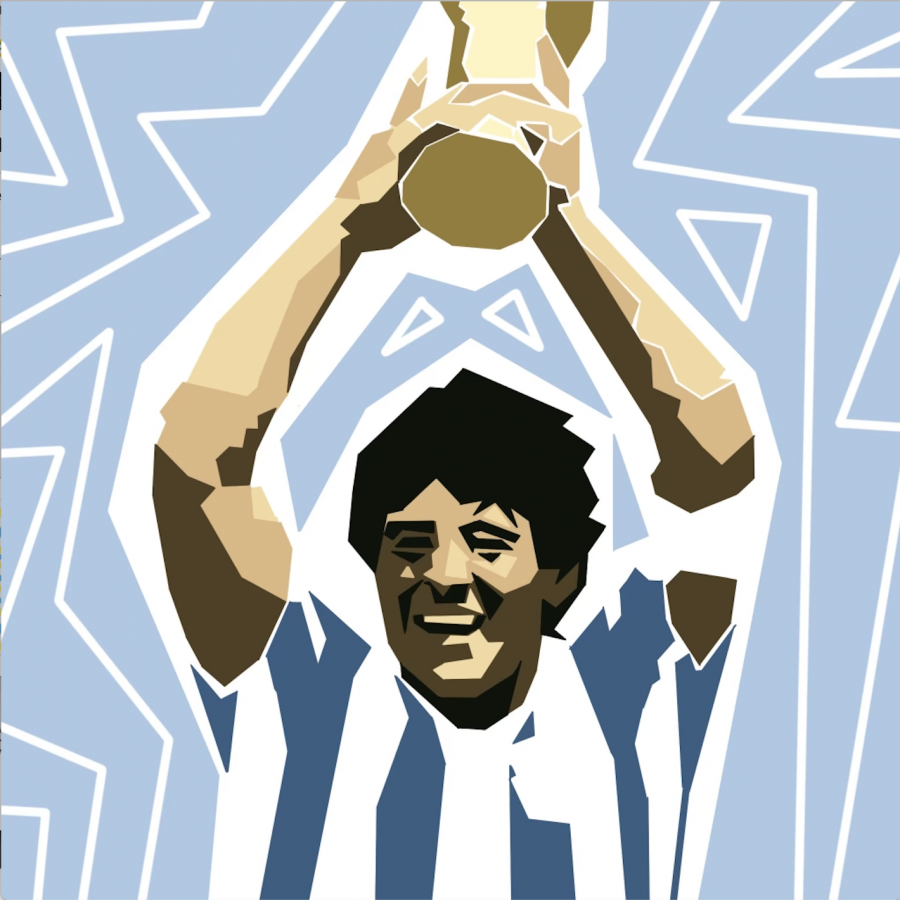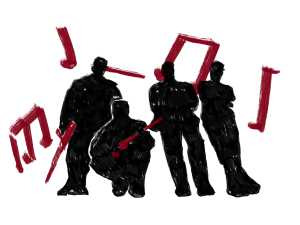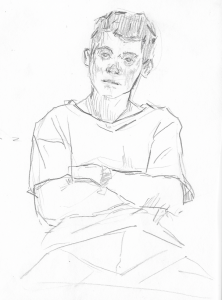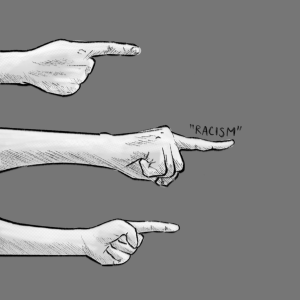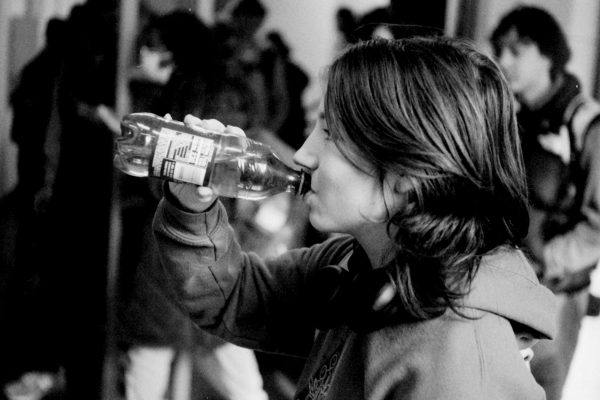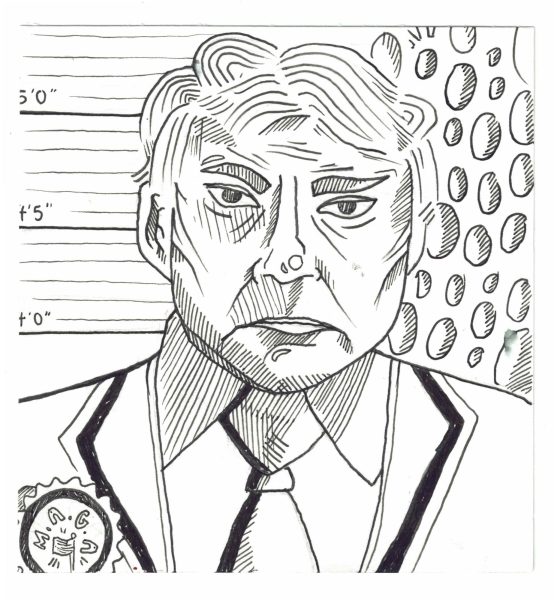The Embodiment of Argentina: A Tribute to Diego Armando Maradona
December 22, 2020
Diego Maradona, one of the greatest Argentine football players of all time, died on November 25th, 2020 of cardiac arrest. Maradona was one of a kind, and his legend lives on. He was a world champion with the Argentinian National team in 1986, a savior in Napoli, and was as hated as he was adored.
The death of “el Pibe de Oro” (“the Golden Kid”), as Argentinians continue to call him, has brought deep antagonism among football fans. Few athletes will have nurtured so zealously the two opposing hotbeds of supporterism, love, and hate as much as him. The perpetrator of the “hand of God” goal, the protégé of the Neapolitan mafia, the friend of Fidel Castro and Hugo Chavez, the incurable cocaine addict, was not an altar boy or a model of virtue. Diego Maradona personified his country with his cunningness and fondness for upsetting the established order—he was Argentina.
“I have two dreams: to compete in the World Cup and to win it,” said the young Maradona when interviewed by Argentinian television at the mere age of twelve. Maradona was born in the poor neighborhood of Villa Fiorito, Buenos Aires. His prodigious talent and natural skill with a ball at his feet was hard to miss, quickly earning him fame in Argentina and a contract to one of the country’s largest and most famed clubs—Boca Juniors—where he broke all kinds of records in the Primera División. Six years after his professional debut, Maradona moved to Barcelona with hopes to conquer Europe.
Maradona was one of a kind, and his legend lives on.
Following his uneventful two-season stint in Barcelona, playing solely 36 games due to injury, rumors began to swirl that Maradona was to move to Italy. It was assumed that Maradona would sign with one of the wealthy northern clubs: Juventus, AC Milan, Fiorentina, or Inter Milan. Instead, Maradona signed with a team from one of the poorest districts in the country. The footballing world was shocked. As one local newspaper at the time put it, the city lacked “[a] mayor, schools, buses, employment, sanitation, but none of this mattered because [it] had Maradona.”
On the day the Argentine first walked out onto the pitch of the Stadio San Paolo (recently renamed Stadio Diego Armando Mardona in his honor) in front of 75,000 supporters of SSC Napoli, not a single club from the south of Italy had ever won the Scudetto (Italian League Title).
Following two seasons of record climbs for Neapolitans in the Italian rankings, and Maradona’s adjustment to the more physical and fast pace of the Italian league, the 1986-1987 season brought an end to the waiting. After an incredible season from the “golden boy,” Maradona brought the Scudetto home to Napoli. Not only had he brought a relegation-threatened team to success in under three years, but he brought pride to a people who were in desperate economic trouble. Nonetheless, Maradona wanted to win more and there was another national title in 1990, and a European trophy (UEFA Cup) in 1989.
It is, however, a single game with the Argentinian national team that ultimately defined both Maradona’s career and life. The end of the Falklands War was the immediate backdrop of the 1986 World Cup quarter-final against England, but resentment between the two sides ran deep. The war had bid both countries against each other over the control of the Falkland Islands off the coast of Argentina, ending in a British victory which left many Argentinians cheated out of their own land. During the match in Mexico City’s Azteca Stadium, Maradona played out his homeland’s collective fantasy. He didn’t simply defeat England, he destroyed them 2-1 with back-to-back goals. Following a conservative first half from both teams, Maradona broke through to score two quick goals after the break in the 51st and 55th minutes, to which the English did not have an adequate response. It was the ethos of Maradona’s goals and what they represented that enchanted the nation back home.
Diego Maradona personified his country with his cunningness and fondness for upsetting the established order—he was Argentina.
The first goal, scored with his hand, made him a very controversial figure. In the same match, he took the ball from his own half, and dribbled past nearly the entirety of England’s defensive shape to score what many have deemed the “goal of the century.” This performance solidified his spot as one of the greatest to ever lace up.
Maradona and Argentina went on to defeat heavy tournament favorites, West Germany, 3-2 in the final, once again bringing pride over an entire people. Over the course of the tournament, Maradona was incredible, recording five goals and five assists in seven games and earning the World Cup Golden Ball. His compatriots no longer adored him, they worshipped him.
Nonetheless, he was not built to be a god, nor is any man. Photographs of Maradona during his prime reveal a life that was desperately claustrophobic. Struggling with substance abuse, cocaine, and the overshadowing pressure of the Camorra mafia in Napoli, (who is rumored to have been the reason for SSC Napoli was able to afford him in the first place), led to a very sad retreat from football, with many years lost in suspension. Amidst all the euphoria and hysteria of fame, Diego didn’t have anyone to support him. It was solitude at its cruelest—hidden in plain sight.
Maradona’s canonization—in Argentina and Napoli—airbrushed the flaws of his character. Maradona was no saint, but he never wanted to be one either. He just wanted to be Diego, the poor Argentinian kid who realized his dream of playing the sport he loved, the beautiful game.

